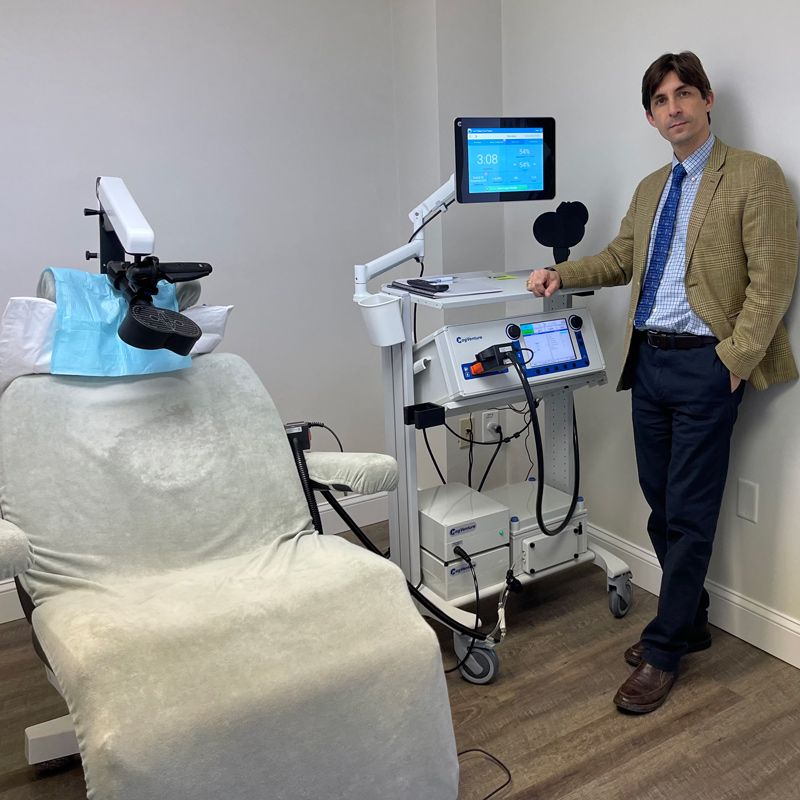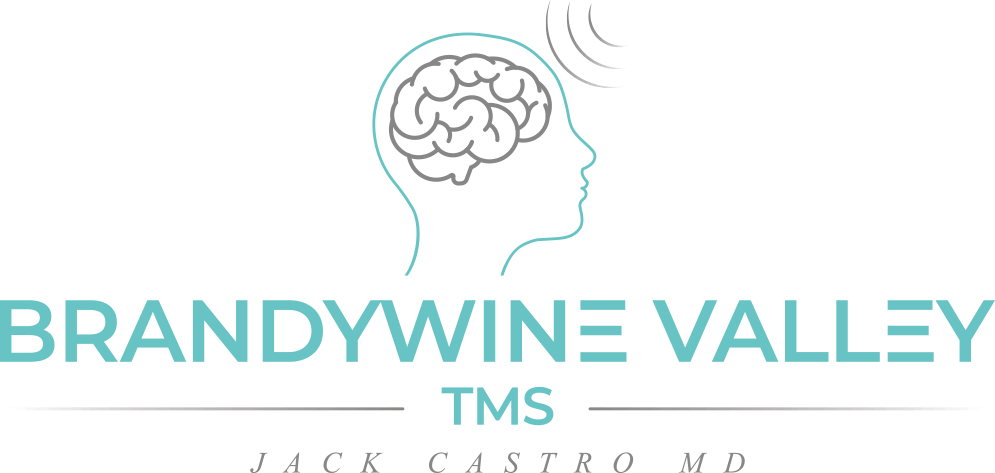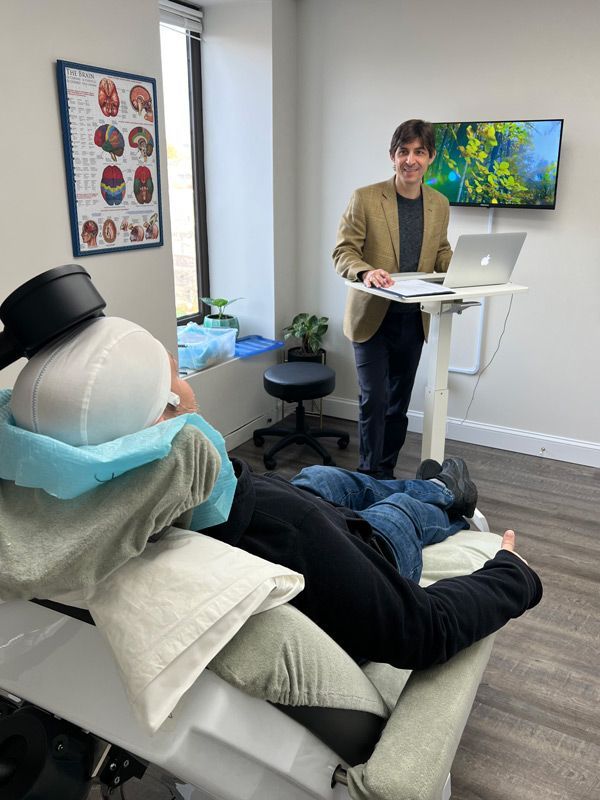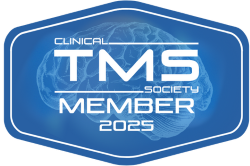Transcranial Magnetic Stimulation (TMS) Therapy
A REAL PATIENT TMS THERAPY REVIEW & CASE STUDY
By Dr. Jack Castro of Brandywine Valley TMS in Wilmington Delaware
LEARN HOW BRANDYWINE VALLEY TMS THERAPY HELPED JAMES
Background
In August 2018, I had the privilege of meeting James, a 36-year-old patient referred by his retiring psychiatrist. James presented with ADHD, inattentive type, and cyclothymia, a milder form of bipolar disorder. His treatment history included a moderately complex medication regimen: Celexa (20 Mg daily), Concerta (127 Mg daily), Klonopin (2.5 Mg daily), and Lamictal (200 Mg twice daily). Despite this, his mood oscillated between relative normalcy and severe dysfunction.
Diagnosis Revision and Treatment Adjustments
Over the years, James's symptoms pointed more towards major depressive disorder, treatment-resistant, rather than cyclothymia. We attempted various medication adjustments, including adding Wellbutrin to counteract Celexa's sexual side effects and address depression. However, a suspected seizure event, likely unrelated to his condition, led to the discontinuation of Wellbutrin, resulting in a deepening of his depression.
Introduction to TMS Therapy
In 2023, after acquiring a MagVenture TMS system and establishing a strong patient-physician relationship with James, I suggested Transcranial Magnetic Stimulation (TMS) therapy. Initially, James scored 20 on the PHQ9, indicating severe depression. We determined his motor threshold (MT) at 50% for TMS sessions, targeting the left dorsolateral pre-frontal cortex, a key area in depression treatment.
TMS Therapy Progress
The therapy commenced with an initial setup of 3000 pulses per session. James described the sensation as akin to a "woodpecker pecking at my head." Remarkably, after just 13 sessions, James reported a significant lift in his mood, and his PHQ9 score dropped to 8. To further optimize his treatment, we adjusted the TMS parameters, increasing the pulse count and adapting the intensity according to his changing MT.
James’s PHQ9 Results Over 36 TMS Sessions
Session 01: 05-01-23 PHQ9 = 20 / 3000 pulses
Session 11: 05-15-23 PHQ9 = 08 / 3000 pulses
Session 16: 05-22-23 PHQ9 = 07 / 4000 pulses
Session 21: 05-30-23 PHQ9 = 05 / 5000 pulses
Session 32: 06-16-23 PHQ9 = 05 / 5000 pulses
Session 36: 06-28-23 PHQ9 = 01 / 5000 pulses
An image of James undergoing TMS therapy treatment by Dr. Jack Castro
Final Outcome & Continued Care
By the 36th session, James achieved a PHQ9 score of 1, a substantial improvement from his initial state. It's noteworthy that despite continuing Klonopin, which can dampen neuronal activity, James experienced considerable benefits from TMS therapy. His journey, marked by trust and perseverance, is a testament to the potential of TMS in managing severe depression. James continues bi-weekly TMS sessions and maintains his initial medication regimen, finding a new lease on life under our care.
Conclusion
This honest TMS therapy review for depression treatment highlights the transformative impact of TMS, especially in cases where traditional medication approaches face limitations. James's story is a powerful TMS therapy testimonial, showcasing real patient results under the expert guidance of Dr. Jack Castro of Brandywine Valley TMS located in Wilmington Delaware.
Read James's TMS Review
Real TMS Treatment Feedback
"I had struggled with depression for over 20 years. After trying multiple medications, side effects were becoming intolerable. Some caused nausea and effected libido, others did not help at all. Tms therapy seemed to be the correct path. After treatment the sadness and brain fog, lost of interest were lifted. I also have more energy. I haven't felt this well in quite a long time. The staff is extremely friendly, with a great bedside manner. Thank you Dr Castro and staff!"
Experience the Benefits of TMS Therapy Today
TMS Therapy, an FDA-approved treatment, is non-invasive and non-sedative, offering minimal to no side effects. Unlike mental health medications, which frequently bring about undesirable side effects, TMS therapy provides an immediate sense of optimal well-being following treatment sessions. Patients often experience noticeable positive changes as early as the third week, and sometimes even sooner. On this page, we've shared one real-world patient experience.
TMS has gained a strong reputation as an outstanding alternative for individuals who do not experience positive results from traditional mental health medications.
Local to Wilmington Delaware? Contact Brandywine Valley TMS today!







